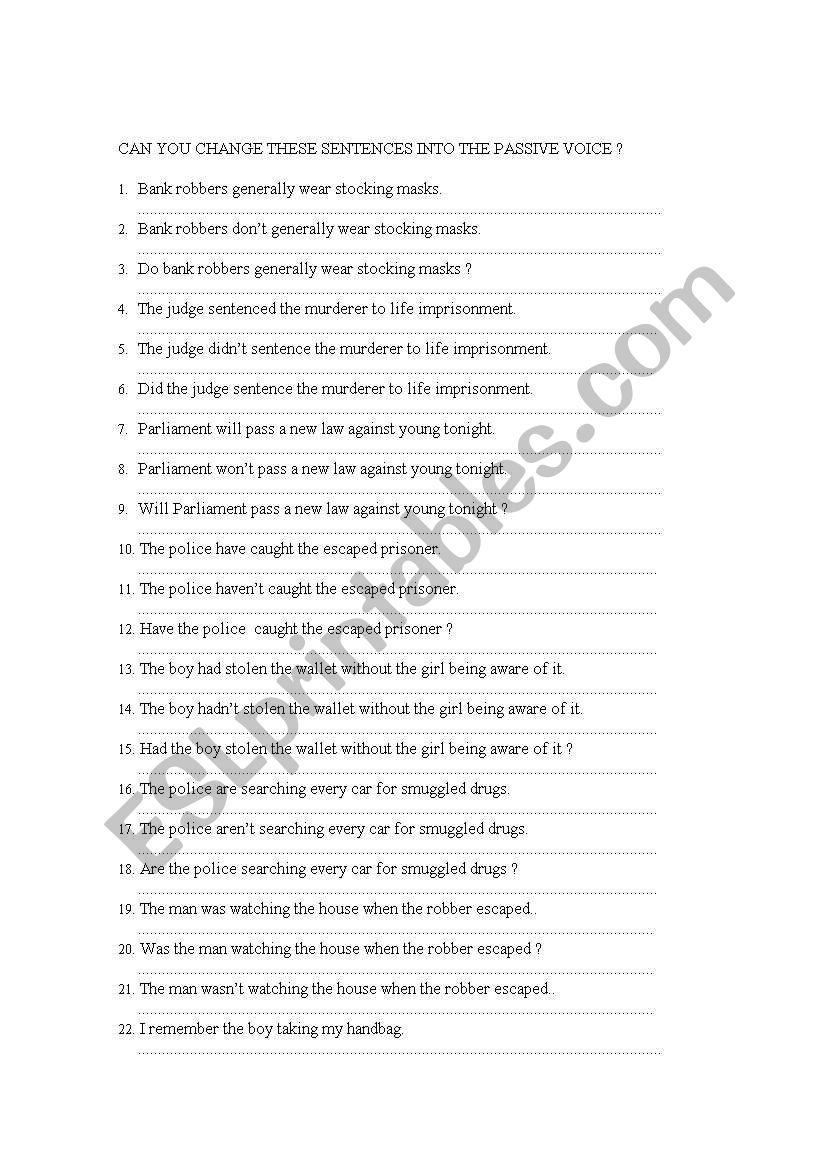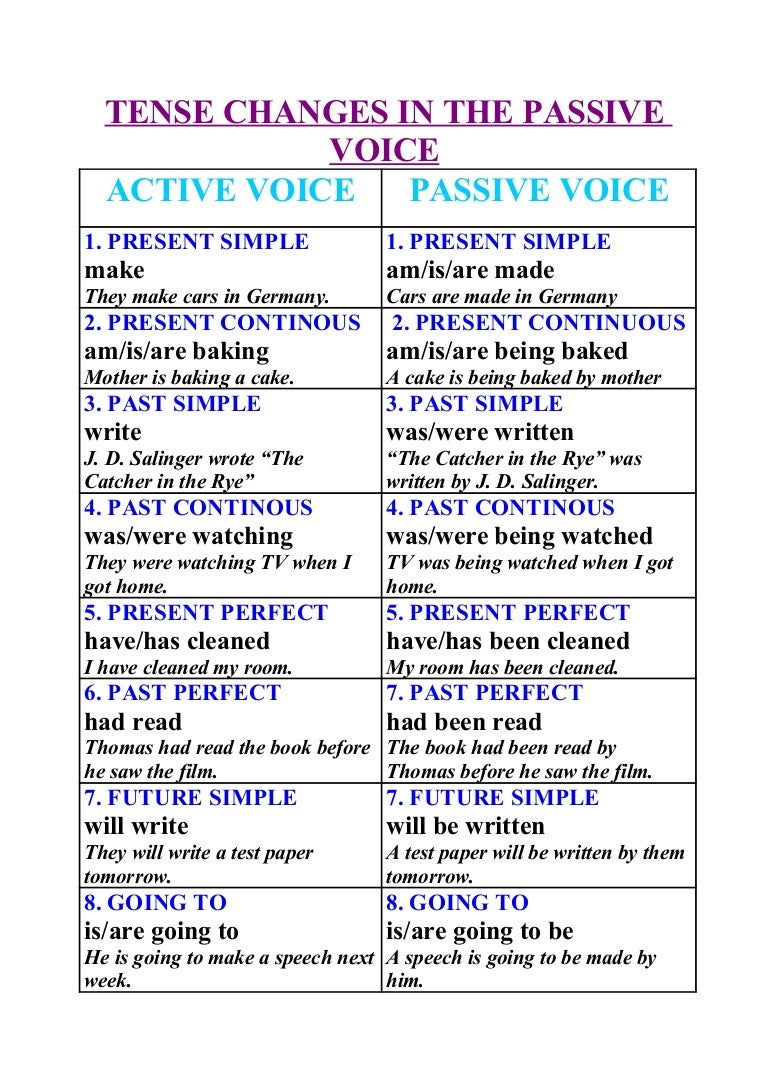The iLexicon system can handle active/passive voice conversion of fairly complex English sentences. I gave examples of the underlying verb conjugation mechanism in this article and this one. Today, I am going to give examples of the conversion of complete sentences.

Here is an example of active to passive voice conversion:
Active To Passive Voice

The online tool can highlight the passive voice sentences and can give you suggestions to correct them. They can provide you options to convert them into active voice. It does not correct them automatically, rather gives you options and suggestions. Sometimes you use passive voice intentionally, in that case, you can keep the voice of your choice. If you want to check your essay, which should be in active voice. You can use essay passive voice. To convert from a passive voice construction in an English sentence to an active voice sentence, identify the agent or doer of the action and make the agent.
The above is a snapshot of the interactive session in my Sicstus Prolog IDE. You can see that the sentence “he drank milk” has been correctly converted to “milk was drunk by him”.
Here are some more examples of active to passive voice conversion:
The last example is a special case that uses the preposition “to” instead of “by” in the passive voice.
What about passive voice to active voice? The following is based on the earlier example:
Passive To Active Voice
It works as expected. Here are some more conversions:
Notice how the pronouns in the first example are suitably modified while changing the voice. The last example is a special case where the subject is missing. The word “someone” is introduced in this case when converting to active voice.
Instead of converting from one voice to the other, we can give an active voice sentence and a passive voice sentence and check if they agree.
Validating Active/Passive Sentence Pairs
Note that the system flags the second example as incorrect. The correct conversion of the active voice sentence “he drank the sweet milk” is “the sweet milk was drunk by him“.
Here are more examples of this:
As you would have guessed, the first example shows incorrect conversion. The correct conversion is “the story book is being read by peter“.
iLexicon’sconversion engine first parses the given sentence to extract the Subject, Predicate and Object. Then it applies verb conjugation and active/passive conversion rules, and finally emits the transformed structure. Below is a snapshot of the core logic (Prolog):
The Core Conversion Logic
It was challenging to work on this part but I thoroughly enjoyed it!
Passive To Active Voice Converter
Have a great weekend!
Comments are closed.